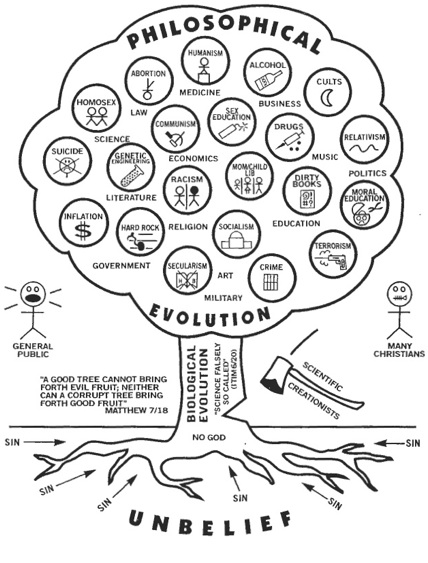In the second week of the Coursera course on Philosophy, Science and Religion, professor John Evans gives a series of lectures on the conflict between science and religion. He organizes his lectures based on three types of conflict – systematic, propositional, and moral.
Systematic
Regarding systematic conflict, Dr. Evans rightly points out that at least in western cultures, there really is no significant systematic conflict between science and religion. If this were the case, there would be a significant amount of people who reject science all together, and would not trust nor rely on anything that results from the scientific community. But even the most fundamentalist of religious believers accept the vast majority of the products of science at face value. And it is only a relatively small list of specific theories of science that religious believers reject or are skeptical of. This brings us to the next type of conflict.
Propositional
Propositional conflict would be conflict that is on a case-by-case basis and depends on just what is being claimed by science. Thus religious believers for the most part are not blindly dismissing the claims of science all together, but only those claims that they are in specific conflict with. The nature of this conflict will usually involve the interpretations of religious texts like the Bible, pitted against the conclusions drawn from scientific data. And of course, both sides can have their own spin on the sources. But Dr. Evans seems to feel that the most significant nature of the conflict between science and religion is moral in character.
Moral
The moral conflict also seems to me to be at the heart of much of the conflict between science and religion. Where science may be concerned more with what we can do, religion is more concerned with what we should do. And religious believers will often be concerned with the moral consequences of the claims of science. One illustration given was called ‘The Evolution Tree’ by Elmendorf shown below:

I think this illustration is helpful in understanding the nature, and likely the motivation, of the religious conflict from the perspective of some believers on the topic of evolution. The objection here has nothing to do with any sort of data or findings of science, but that the theory itself will lead too all sorts of societal ills including things like abortion, racism, and genetic engineering. Religion desires to keep its’ place in society to help protect it from these negative consequences, and thus will not want to give up the contest easily. And this is why the moral conflict is likely the most fundamental conflict between science and religion.
Continue reading at the original source →



